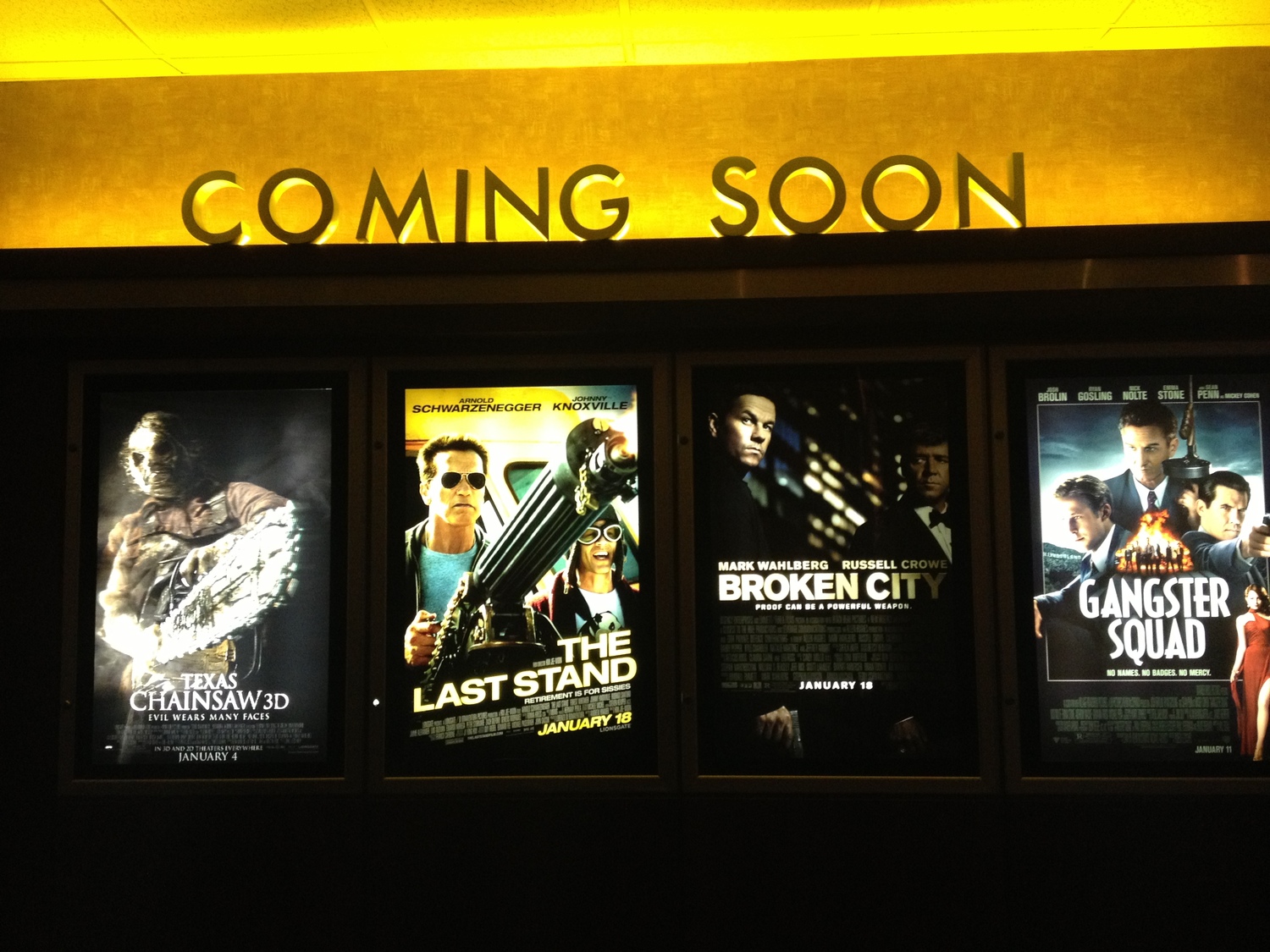KILLER CAMPAIGNS: VIOLENCE IN ADVERTISING
/Note: This blog was initially posted in January 2011 in response to the shooting of Gabrielle Giffords. The pop culture references may therefore seem dated, but the point of it is unfortunately timelier than ever.
WITH ALL THE TALK OF GUNS THESE DAYS, I find it interesting that no one is talking about the prevalence of guns in advertising. Or for that matter, the violent imagery all around us.
FOR MORE CURRENT CULTURAL REFERENCES, CONSIDER THE COMING ATTRACTIONS GREETING CHILDREN ENTERING A THEATER SHOWING WRECK-IT RALPH. DEATH BY CHAINSAW, ROCKET LAUNCHER, MACHINE OR HAND GUN: THAT'S ENTERTAINMENT.
This is not a call for censorship. It's merely an observation that we - particularly in urban areas - are surrounded by graphic images of well-armed individuals with violent intent. It's our wallpaper.
More broadly, it comes through our television screens at inappropriate hours. A daytime championship football match might seem like family viewing to some (the inherent violence of the game notwithstanding) until the full artillery explosiveness of a DVD release promo for "Reds" blasts into your living room at 3:30 in the afternoon.
One is probably more sensitive to, and less able to shut out, imagery like this when walking down the street holding the hand of an impressionable six year old for whom images meant to terrify do their job all too well. My son was recently mesmerized by a bus card for FX's Lights Out. It gave him nightmares. An angry, bloody face coming at him from the side of his school bus. Makes sense.
Kids are ill-equipped to process scary images, and that's as it should be. They need to build up a solid defense mechanism before they can find the humor - for lack of a better word - in a film like "Pulp Fiction" or "Reservoir Dogs" or, for that matter, an ad of a blood-splattered baby on behalf of Dexter.
There's been much handwringing over the violent nature of our video games but not the aggressiveness of their promotion. Take Call Of Duty: Black Ops and its campaign "There's a Soldier in All of Us" - the idea being, well...you get the idea. Especially when Jimmy Kimmel appears in the TV spot. Interesting that the dust up around this ad surrounded the presence of Kobe Bryant and not the young, school-age girl getting her kicks in the killing field.
I don't think it's a leap to suggest that an unstable person - define that, please - filled with a certain high level of frustration might see himself in the Call of Duty billboard depicting everyday folks taking up arms. Then he turns the corner to face a poster for the film "The Mechanic" with the ad line "Somebody Has to Fix the Problems" and you've got a pretty effective call to action.
Getting back to video games for a moment: after posting what I thought was a nicely ironic piece of mock propaganda bemoaning the investment of so much of our technology and brainpower on time-killers, a female 20-something Facebook friend of mine wrote "Don't knock it - video games are great stress relievers. Nothing perks up a day like shooting a zombie in the face." Apparently that's the prevailing view. Must be a lot of stress out there.
Of course, none of this is really new, only the elevated graphic nature of it. Check out old posters of Edward G. Robinson or Humphrey Bogart, guns at the ready. But those were always presented within a fictional context. With the complete blurring of real life and pop culture, with everyone and his sister-in-law thinking they're reality TV material, with social media turning every single one of us into the star of our very own Truman Show, advertising mirrors our own self-image in ways it never did before.
So why are we shocked, shocked anew each time violence erupts? We shouldn't be. These images are meant to connect, and they do. We subject our youngest and most vulnerable to horrific images in the name of entertainment, without restraint, and as a result they lose their innocence at an ever younger age, like the child soldiers of Brazil in "City of God". When killing is a game and blood and guns are commonplace, it's only natural that they will grow up inured to ugly and fearful imagery, desensitized to the realities of warfare. They may come to think that violence is fun. Some may even relate to it on a deeply personal level.

